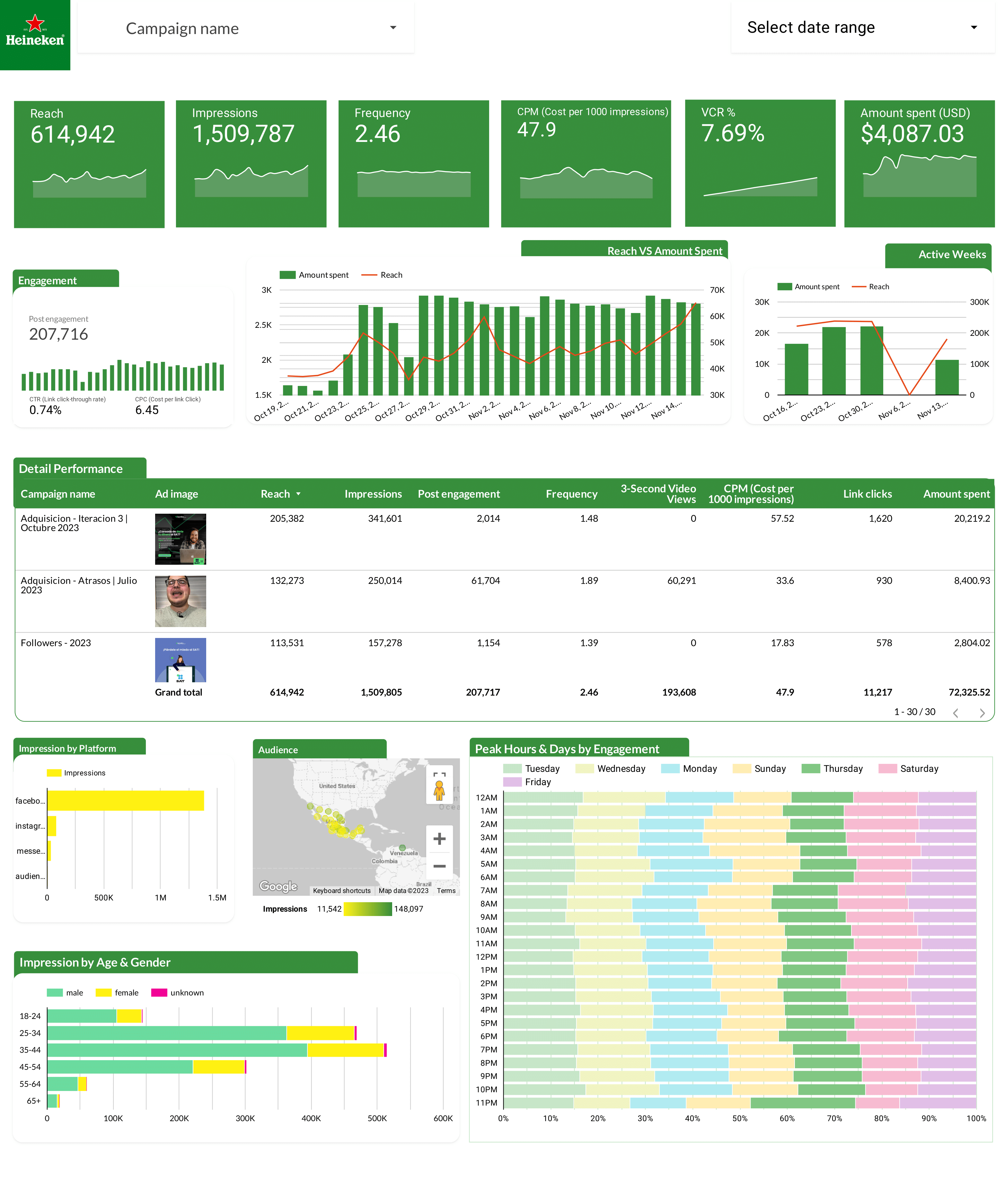
Facebook Ads Dashboard template
The Facebook Ads Dashboard Template is designed for PPC professionals seeking to streamline their advertising efforts on Facebook. This template provides a structured approach to monitor and analyze your ad performance.
With this dashboard, you can:
- Track campaign metrics such as impressions, clicks, and conversions.
- Analyze audience engagement and demographic data.
- Monitor ad spend and ROI in real-time.
Utilize this template to maintain a clear overview of your Facebook Ads performance, ensuring data-driven decision-making for your PPC campaigns.
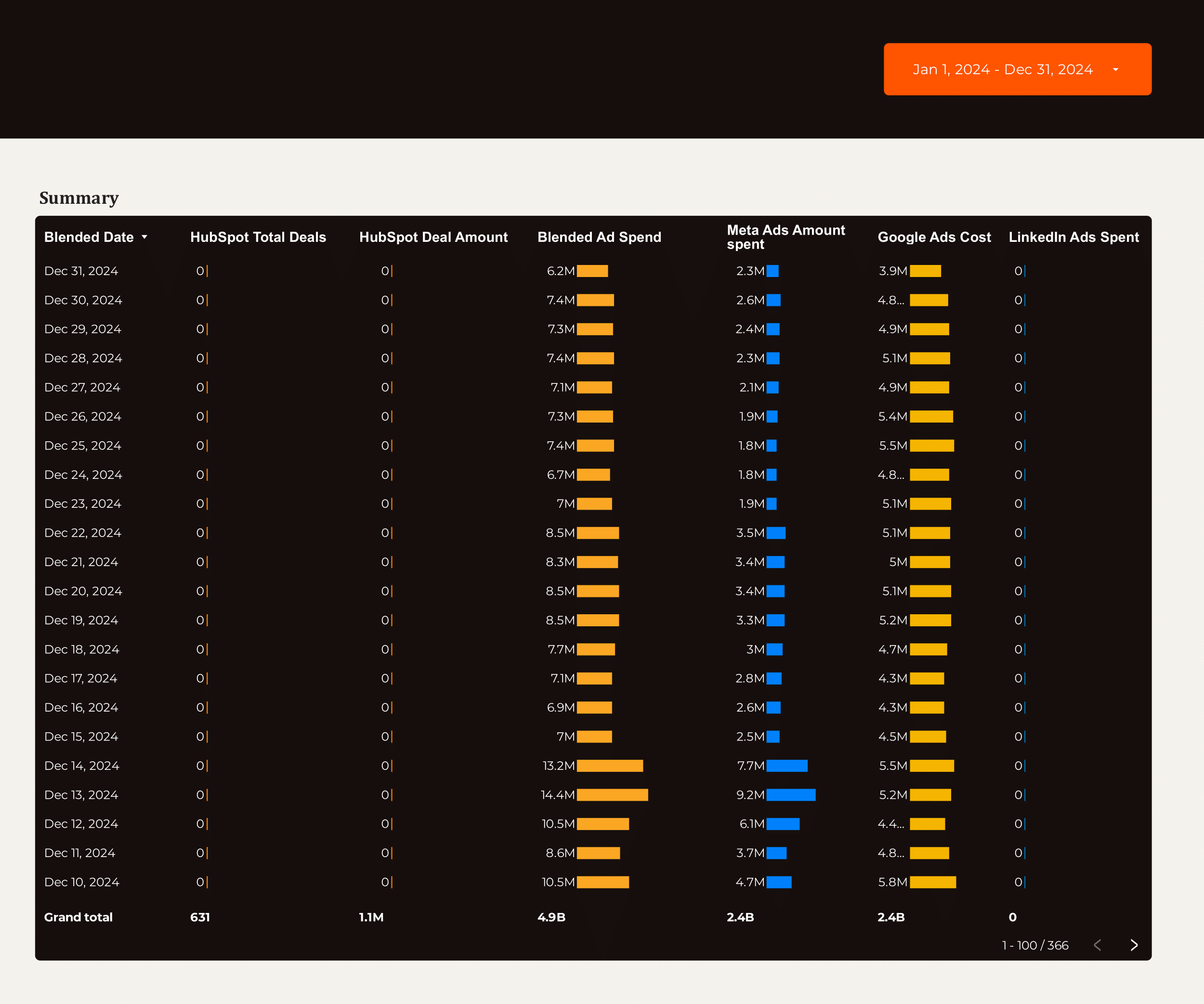
Lead generation Dashboard template
The Lead Generation Dashboard Template is designed for B2B marketers and sales teams to streamline their lead management process. This template integrates with popular platforms such as Google Ads, LinkedIn Ads, Facebook Ads, and HubSpot, providing a centralized view of your lead generation efforts.
Utilize data from Google Analytics 4 to track and analyze the performance of your campaigns. The dashboard offers insights into:
- Lead Sources: Identify which channels are driving the most leads.
- Conversion Rates: Monitor the effectiveness of your PPC campaigns.
- CRM Integration: Seamlessly connect with HubSpot to manage and nurture leads.
This template is essential for businesses looking to optimize their B2B lead generation strategy by leveraging data from multiple advertising and analytics platforms.
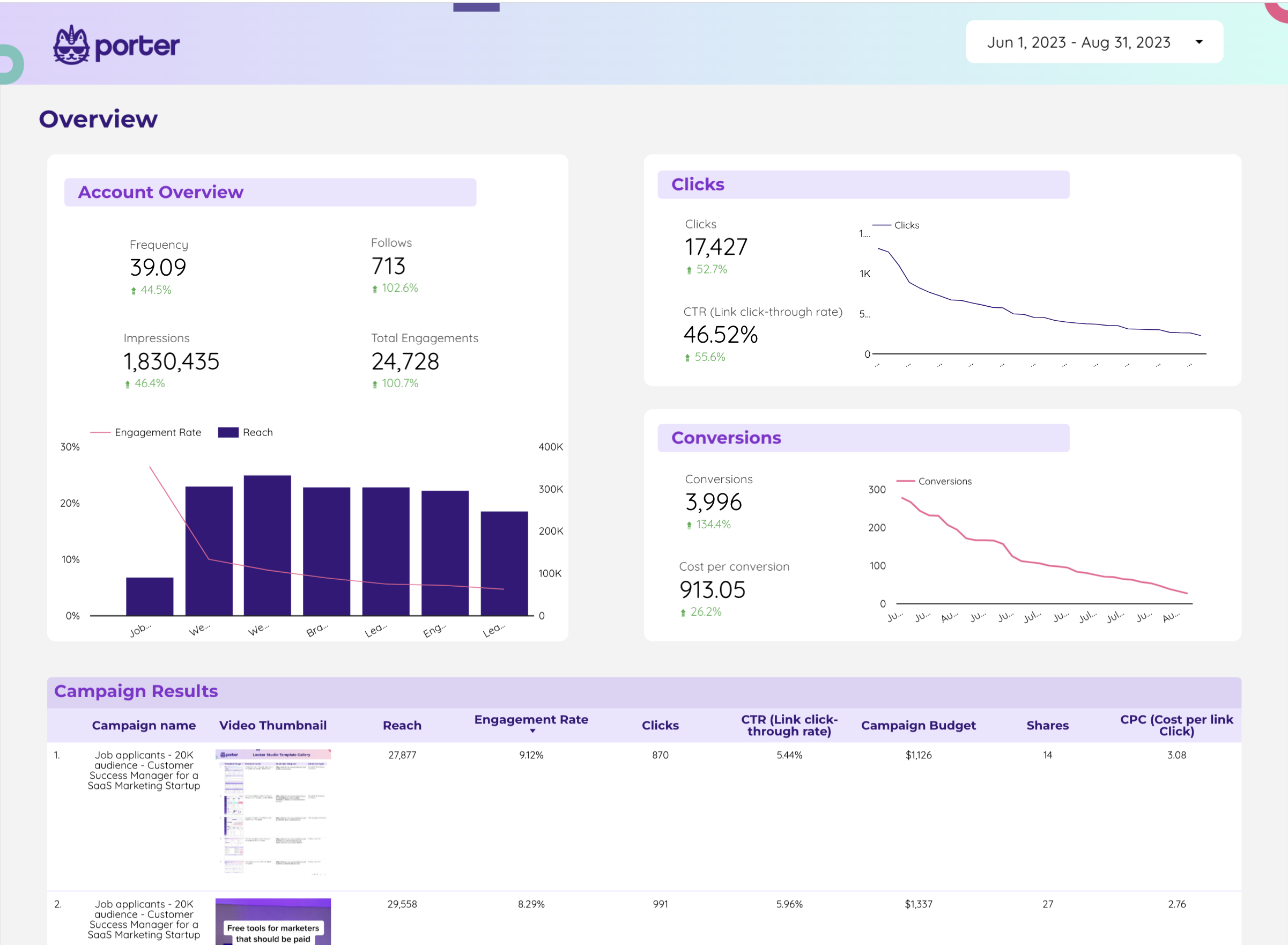
Twitter Ads Dashboard template
The Twitter Ads Dashboard Template is designed for PPC professionals seeking to streamline their advertising efforts on X Ads. This template provides a structured approach to managing and analyzing Twitter Ads campaigns.
With this dashboard, you can:
- Track campaign performance with real-time data updates.
- Monitor ad spend and compare it against budget allocations.
- Analyze audience engagement metrics to optimize targeting strategies.
- Visualize conversion rates and assess the effectiveness of ad creatives.
Utilize this template to maintain a clear overview of your Twitter Ads campaigns, ensuring data-driven decisions and maximizing ROI.
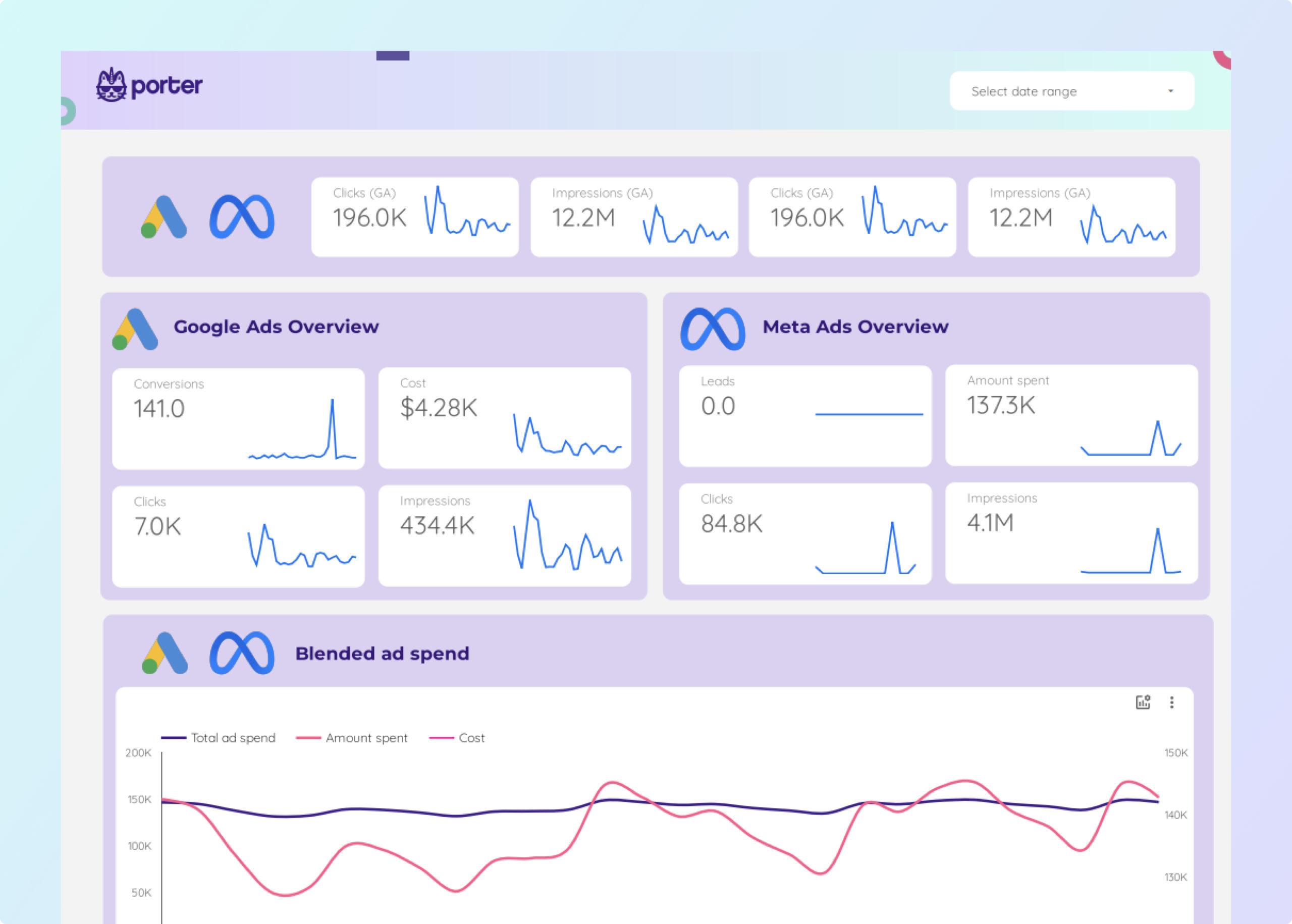
Facebook Ads + Google Ads Dashboard template
Introducing the Facebook Ads + Google Ads Dashboard Template, a powerful tool for managing and analyzing your PPC campaigns. This template is designed to streamline your advertising efforts across two major platforms: Facebook Ads and Google Ads.
With this dashboard, you can:
- Track and compare performance metrics from both Facebook and Google Ads in one place.
- Monitor ad spend, click-through rates, and conversion rates to optimize your campaigns.
- Analyze audience engagement and reach to better understand your target market.
This template provides a centralized view of your advertising data, allowing for informed decision-making and strategic planning. Utilize this dashboard to gain insights into your PPC strategies and drive better results for your business.
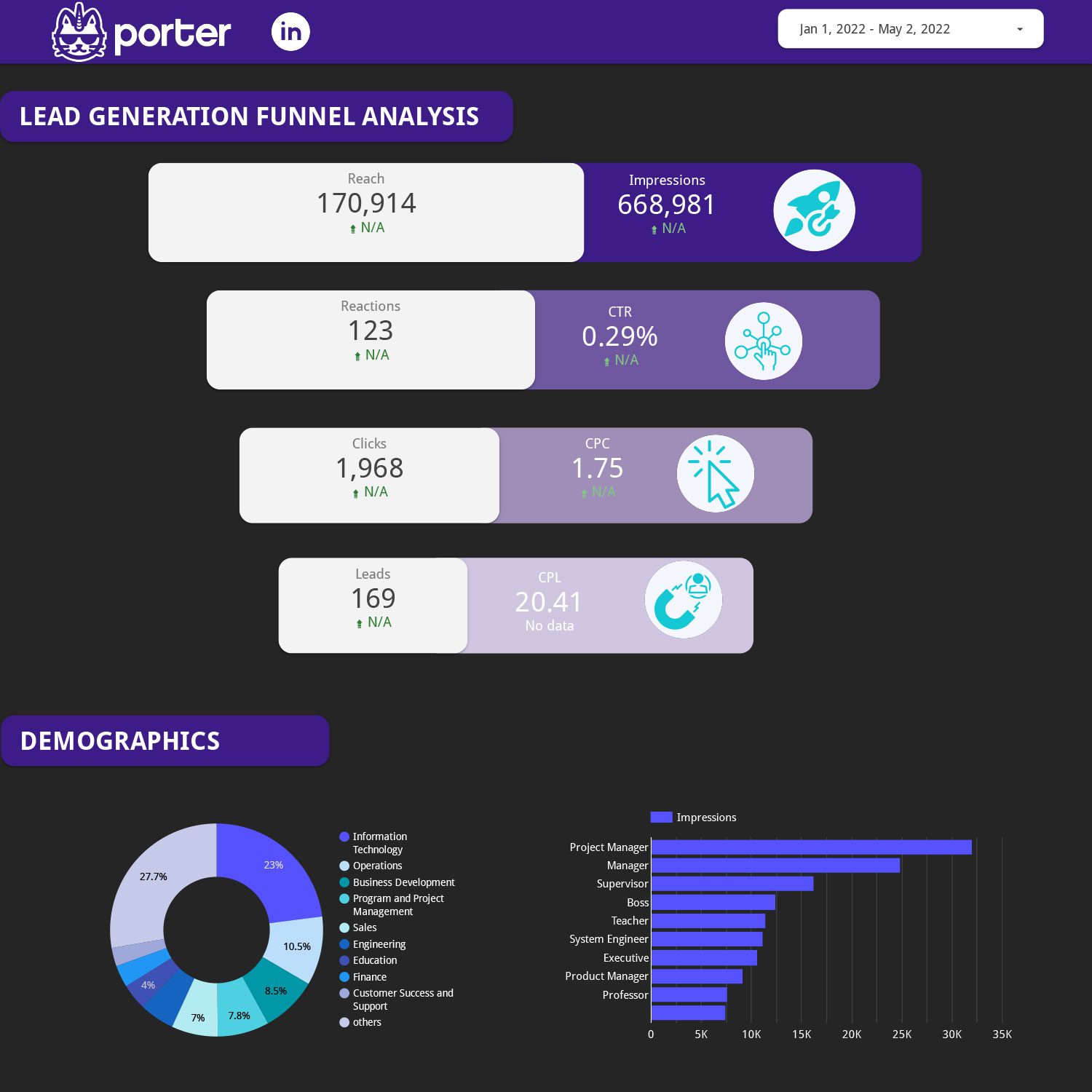
LinkedIn Ads Dashboard template
The LinkedIn Ads Dashboard Template is designed for professionals focused on PPC and Lead Generation in the B2B sector. This template provides a structured view of your Paid Media campaigns on LinkedIn, offering insights into performance metrics and audience engagement.
Key features include:
- Campaign Performance Metrics: Track impressions, clicks, and conversions to understand the effectiveness of your LinkedIn Ads.
- Audience Insights: Analyze demographic data to refine targeting strategies and improve lead quality.
- Budget Management: Monitor spend and ROI to optimize your advertising budget.
- Conversion Tracking: Measure lead generation success and identify high-performing campaigns.
This dashboard is essential for marketers aiming to maximize their LinkedIn Ads impact and drive business growth through targeted PPC strategies.
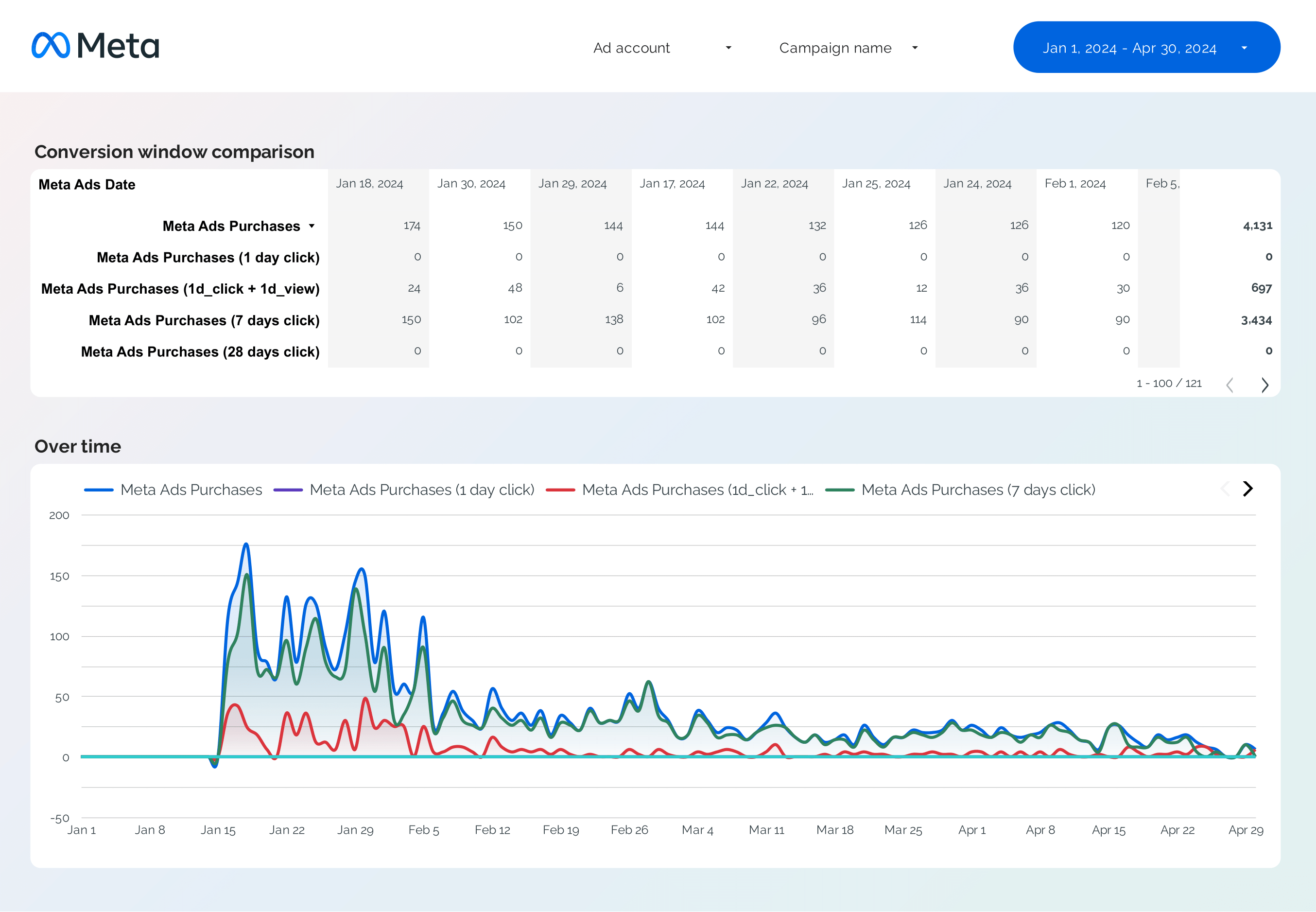
Facebook Ads Attribution Dashboard template
The Facebook Ads Attribution Dashboard template provides a structured view of your PPC campaigns performance. This tool is designed to help marketers understand the attribution of conversions across different touchpoints within Facebook Ads.
With this dashboard, you can:
- Track the performance metrics of your Facebook Ads campaigns.
- Analyze the conversion paths to identify which ads contribute to conversions.
- View multi-touch attribution data to understand the customer journey.
Utilize this template to gain insights into your advertising strategy and make informed decisions based on data-driven analysis.
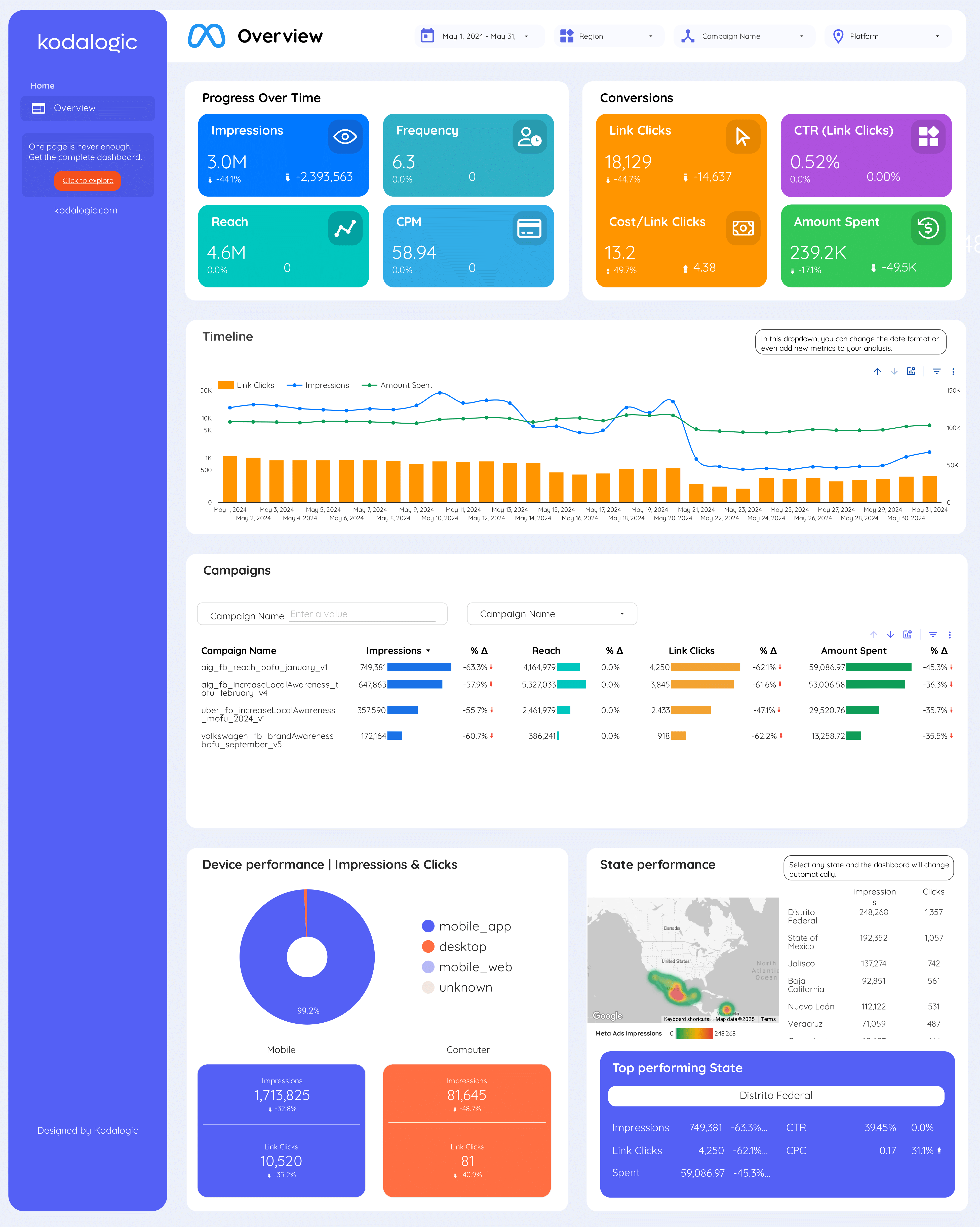
Meta Ads Dashboard template
The Meta Ads Dashboard template is designed for professionals managing PPC campaigns on Facebook Ads. This tool provides a structured view of your advertising data, allowing for streamlined analysis and decision-making.
Features include:
- Real-time Data Tracking: Monitor your campaign performance with up-to-the-minute data updates.
- Customizable Metrics: Select and prioritize the metrics that matter most to your advertising strategy.
- Visual Analytics: Utilize charts and graphs to visualize trends and patterns in your ad performance.
- Budget Management: Keep track of your spending and adjust your budget allocations as needed.
This dashboard is an essential tool for advertisers seeking to optimize their Facebook Ads campaigns and maximize their PPC investments.
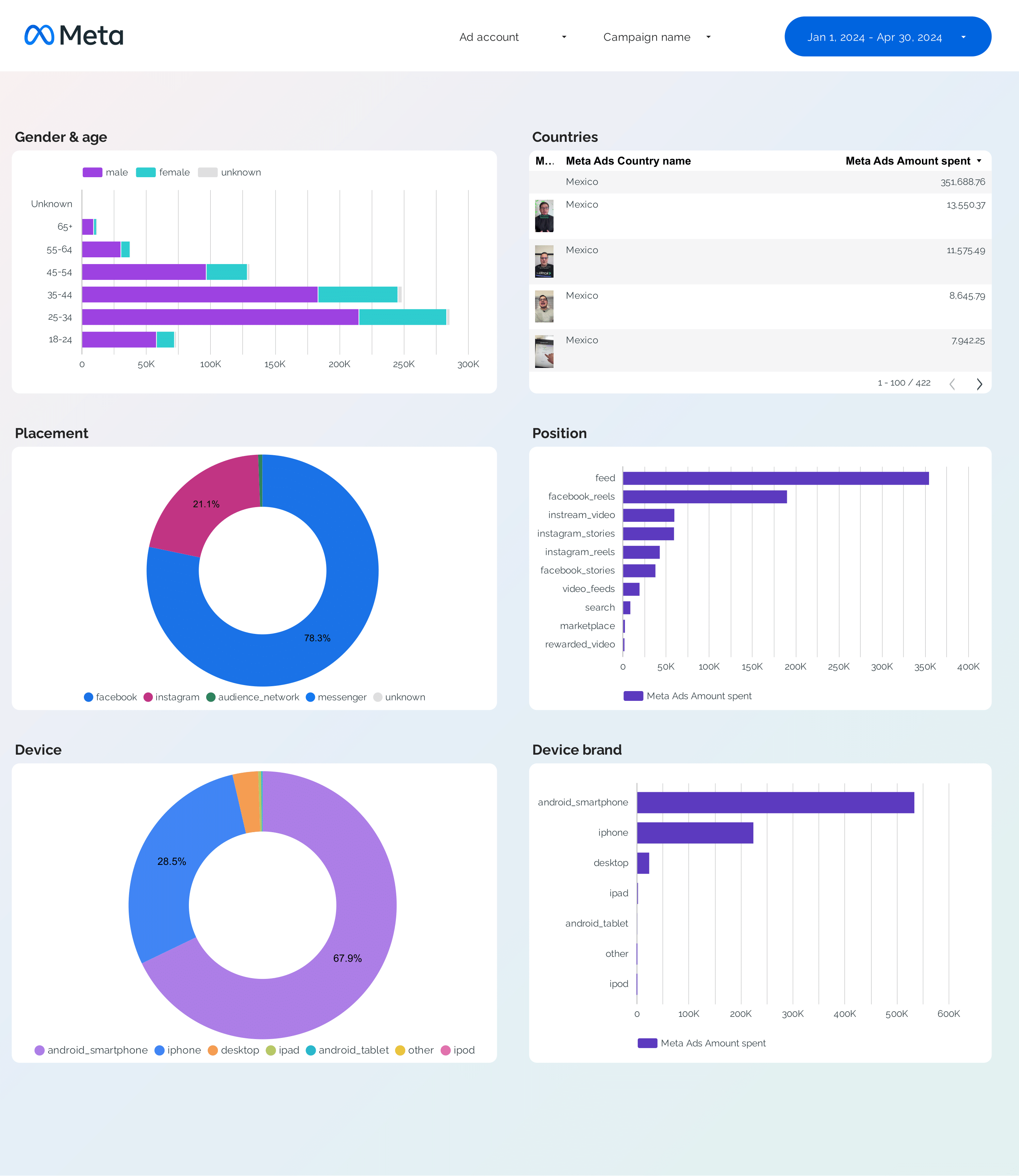
Facebook Ads Audience Dashboard template
The Facebook Ads Audience Dashboard template is designed for PPC professionals seeking to optimize their advertising strategies. This tool provides a structured overview of audience metrics, enabling data-driven decisions.
Features include:
- Demographic Insights: Analyze age, gender, and location data to tailor campaigns effectively.
- Engagement Metrics: Track interactions, clicks, and conversions to assess audience responsiveness.
- Custom Audience Segmentation: Create and manage audience segments for targeted advertising.
- Performance Tracking: Monitor ad performance across different audience groups to identify trends.
Utilize this dashboard to streamline your Facebook Ads campaigns and maximize ROI by focusing on audience-specific data.
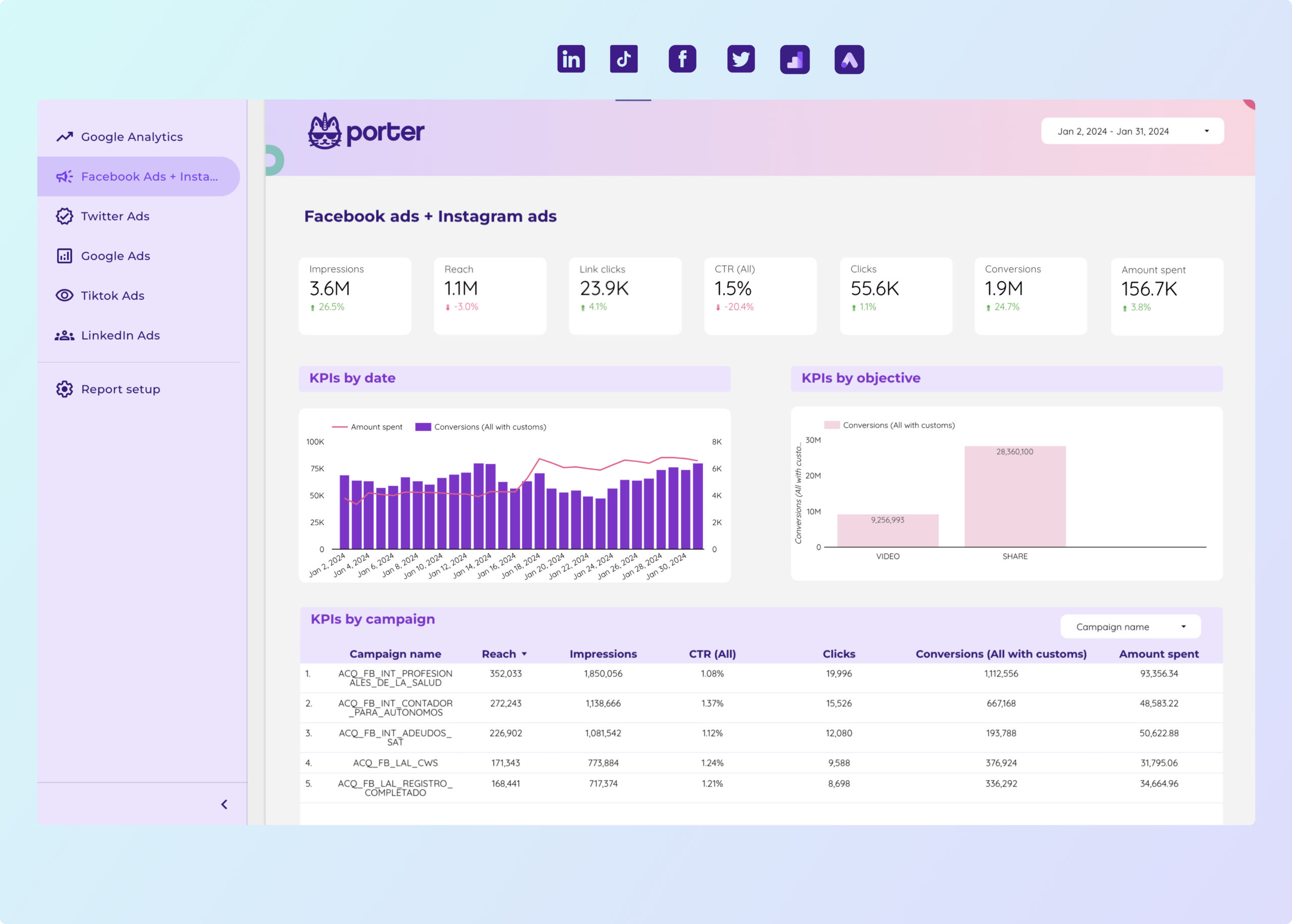
Paid media Dashboard template
This Paid Media Dashboard Template is designed for marketers managing campaigns across multiple platforms. It integrates data from PPC channels such as Google Ads, Facebook Ads, LinkedIn Ads, TikTok Ads, and Twitter Ads.
Utilize this dashboard to track and analyze performance metrics from Google Analytics 4 and Base. The template provides a centralized view of your advertising efforts, allowing for data-driven decision-making.
- Google Ads: Monitor impressions, clicks, and conversion rates.
- Facebook Ads: Analyze audience engagement and ad spend.
- LinkedIn Ads: Evaluate lead generation and campaign reach.
- TikTok Ads: Track video views and user interactions.
- Twitter Ads: Assess tweet engagement and follower growth.
This template is ideal for marketers seeking to consolidate their advertising data into a single, actionable view.
Facebook Ads budget tracking and pacing Dashboard template
The Facebook Ads Budget Tracking and Pacing Dashboard is designed for PPC professionals managing Facebook Ads campaigns. This dashboard provides a clear overview of your ad spend and helps ensure your campaigns stay on track.
With this dashboard, you can:
- Monitor daily spend against your allocated budget to avoid overspending.
- Track pacing to ensure your campaigns are on schedule to meet monthly targets.
- Analyze spend trends to identify patterns and adjust strategies accordingly.
Utilize this tool to maintain control over your Facebook Ads budget and optimize your PPC strategy effectively.
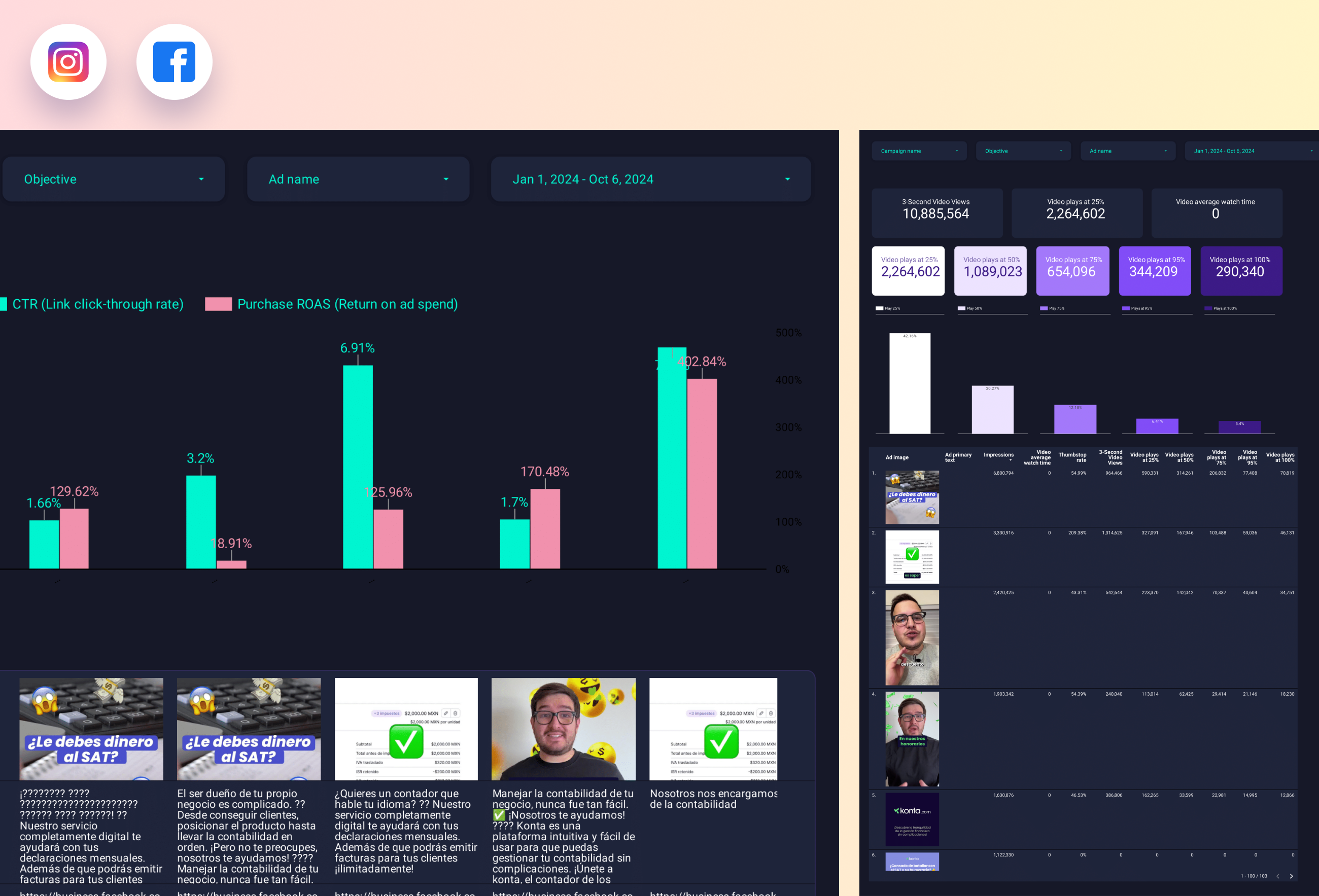
Paid media Creative performance Dashboard template
The Paid Media Creative Performance Dashboard template is designed for marketers managing campaigns across multiple platforms such as PPC, TikTok Ads, Google Ads, Facebook Ads, LinkedIn Ads, and Twitter Ads.
This dashboard provides a centralized view of your advertising efforts, allowing you to track and analyze performance metrics in real-time. It supports:
- Impressions and Clicks tracking for visibility and engagement analysis.
- Cost-per-click (CPC) and Cost-per-acquisition (CPA) metrics for budget management.
- Conversion rates to measure the effectiveness of your ad creatives.
- Platform-specific insights for TikTok, Google, Facebook, LinkedIn, and Twitter.
Utilize this dashboard to streamline your reporting process and make data-driven decisions for optimizing your ad campaigns.
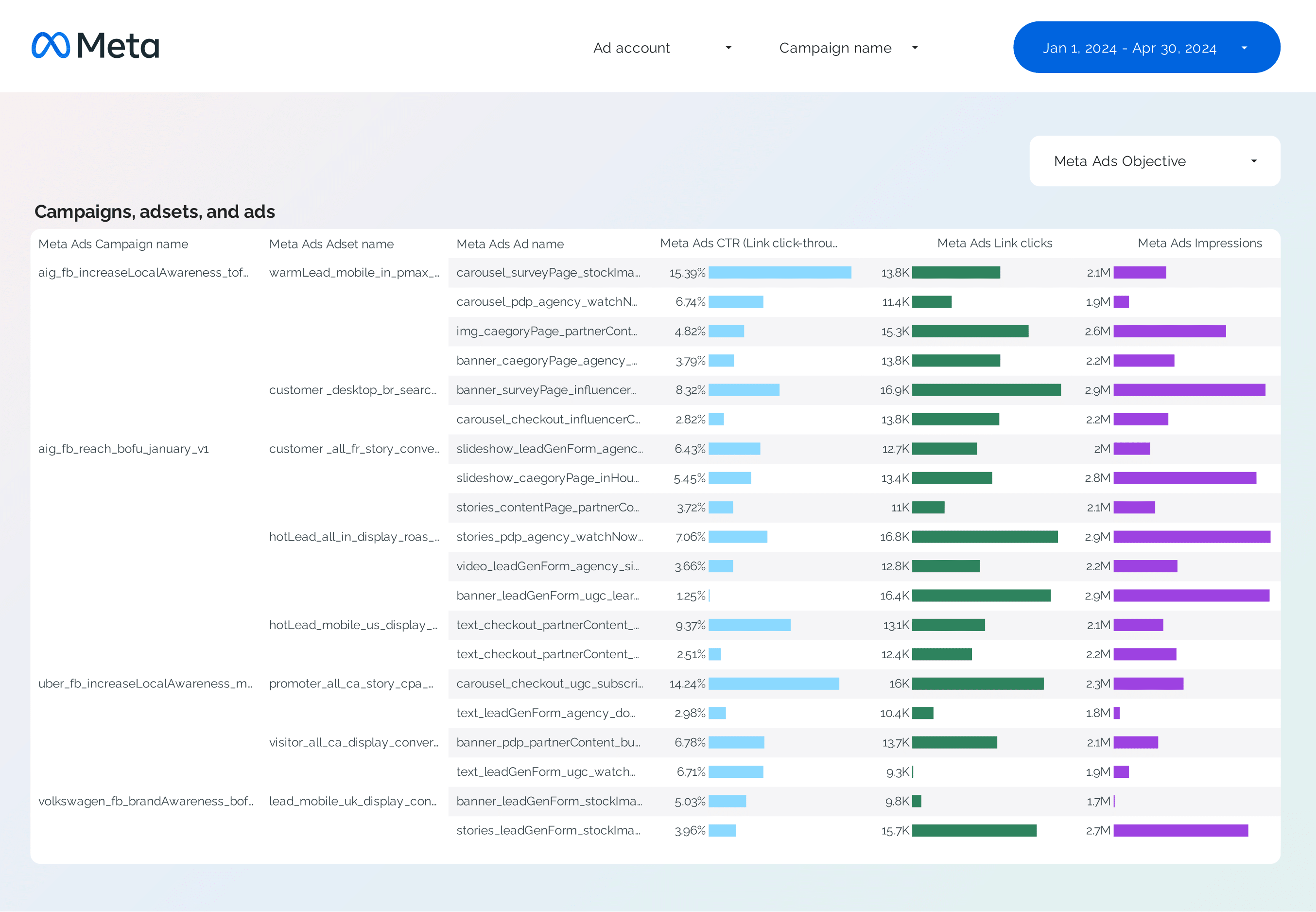
Facebook Ads Campaign performance Dashboard template
This Facebook Ads Campaign Performance Dashboard template provides a detailed overview of your PPC campaigns. It is designed to help you monitor and analyze the performance of your Facebook Ads in real-time.
Features include:
- Impressions and Reach: Track the number of times your ads are displayed and the unique users reached.
- Click-Through Rate (CTR): Measure the percentage of users who clicked on your ad after seeing it.
- Conversion Tracking: Monitor the actions users take after interacting with your ad, such as purchases or sign-ups.
- Cost Analysis: Evaluate your ad spend, cost per click (CPC), and cost per acquisition (CPA).
- Audience Insights: Analyze demographic data to understand who is engaging with your ads.
This dashboard is essential for marketers looking to optimize their Facebook Ads strategy and maximize ROI.


